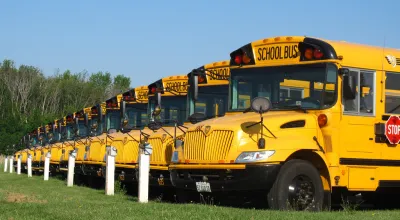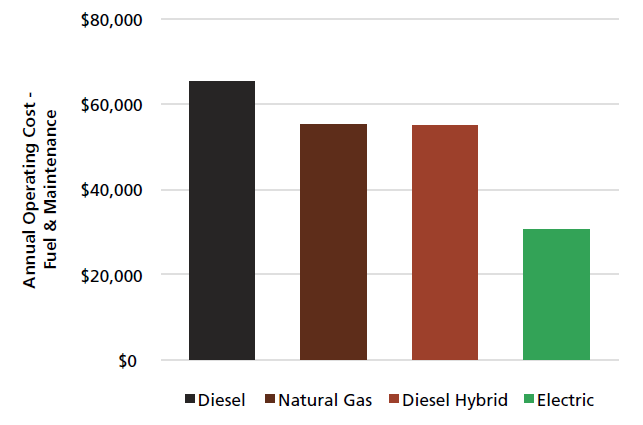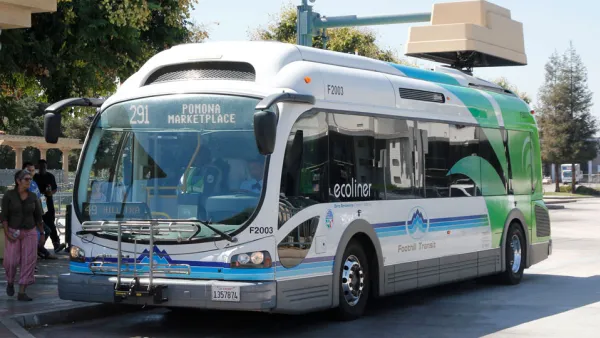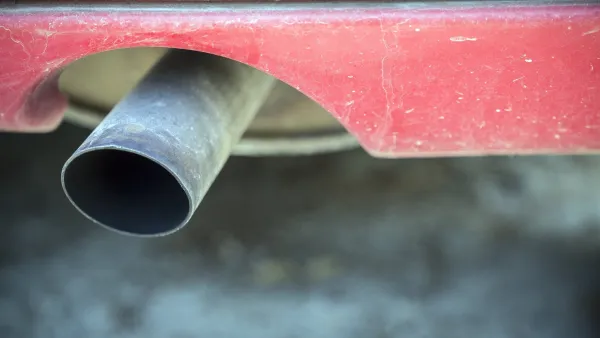U.S. PIRG wants states to use funding from multi-billion dollar Volkswagen settlements to convert the nation's school bus fleet, 95% of which is diesel-powered, to zero-emission buses to reduce children's exposure to toxic air pollution.

The campaign, launched May 3 by the United States Public Interest Research Group (U.S. PIRG), touts the public health and environmental benefits of converting the nation's 480,000 school vehicles to zero-emission buses. It coincides with the release of a new report, “Electric Buses: Clean Transportation for Healthier Neighborhoods and Cleaner Air" [pdf], by the U.S. PIRG Education Fund, Environment America Research & Policy Center, and the Frontier Group.
Approximately 95 percent of U.S. school buses run on diesel, even though numerous studies have shown that inhaling diesel exhaust can cause respiratory diseases and worsen existing conditions such as asthma. The negative effects are especially pronounced in children.
The good news is that all-electric buses are available and ready to roll, and they’re cleaner, healthier and often cheaper for school districts and bus contractors to run in the long-term. And with zero tailpipe emissions, electric school buses can significantly reduce our kids’ exposure to toxic fumes.
Figure ES-1. Estimated Annual Operating Costs of Transit Buses, by Fuel Type

Courtesy of U.S. PIRG
Currently there are pilot programs run by California (Los Angeles County and Gilroy), Massachusetts and Minnesota to test zero-emission school buses. They may involve the conversion of diesel buses as well as purchasing new ones.
One source of funding stems from the $14.7 billion settlement, as well as subsequent settlements in the Volkswagen diesel emissions scandal, first exposed in September 2015 by West Virginia University researchers.
"The VW Environmental Mitigation Trust [stemming from the Volkswagen Clean Air Act Civil Settlement] will provide states with a total of $2.9 billion for projects to cut nitrogen oxide from large vehicles, including school buses," reports Thomas McMahon for the School Bus Fleet blog on April 25. However, school districts will have lots of competition for these funds from transit buses, trucks and other commercial applications ranging from forklifts to port cargo handling equipment.
The report also looked at the environmental benefits of converting the nation's 70,000 transit buses to battery-electric. More than 60 percent run on diesel, 18 percent on natural gas, while just 0.2 percent of buses are all-electric.
Hat tip to AASHTO Journal.
FULL STORY: Electric Buses: Clean Transportation for Healthier Neighborhoods and Cleaner Air

National Parks Layoffs Will Cause Communities to Lose Billions
Thousands of essential park workers were laid off this week, just before the busy spring break season.

Retro-silient?: America’s First “Eco-burb,” The Woodlands Turns 50
A master-planned community north of Houston offers lessons on green infrastructure and resilient design, but falls short of its founder’s lofty affordability and walkability goals.

Delivering for America Plan Will Downgrade Mail Service in at Least 49.5 Percent of Zip Codes
Republican and Democrat lawmakers criticize the plan for its disproportionate negative impact on rural communities.

Test News Post 1
This is a summary

Test News Headline 46
Test for the image on the front page.

Balancing Bombs and Butterflies: How the National Guard Protects a Rare Species
The National Guard at Fort Indiantown Gap uses GIS technology and land management strategies to balance military training with conservation efforts, ensuring the survival of the rare eastern regal fritillary butterfly.
Urban Design for Planners 1: Software Tools
This six-course series explores essential urban design concepts using open source software and equips planners with the tools they need to participate fully in the urban design process.
Planning for Universal Design
Learn the tools for implementing Universal Design in planning regulations.
EMC Planning Group, Inc.
Planetizen
Planetizen
Mpact (formerly Rail~Volution)
Great Falls Development Authority, Inc.
HUDs Office of Policy Development and Research
NYU Wagner Graduate School of Public Service





























